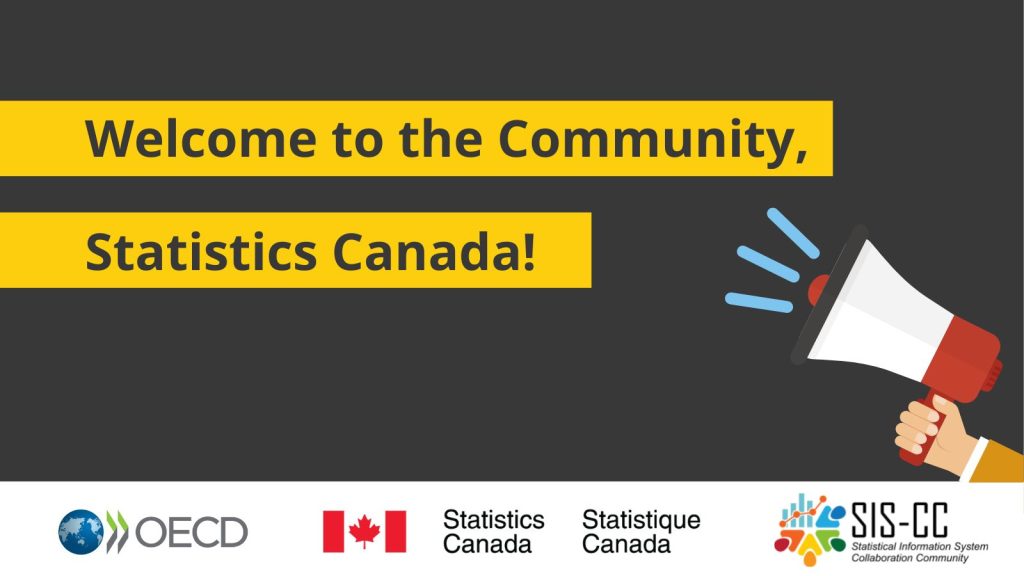
The Community is very pleased to welcome Statistics Canada as the newest member.
“Joining this global community with common goals, a passion for open standards and sharing similar needs around the production of official statistics, allows our organisation to benefit from international collaboration and co-development, while contributing to this great community.”
Cory Chobanik, Director of the Centre for Statistical and Data Standards at Statistics Canada
Previously, Statistics Canada had been following the development of the community-developed .Stat Suite open-source platform and other standards-based solutions, increasingly seeing value in the community’s work for advancing Statistics Canada’s data production and dissemination infrastructure.
For example, the .Stat Suite has allowed Statistics Canada to quickly release a comprehensive set of web services (APIs) to its users for the 2021 Census of Population. The 2021 Census Profile Web Data Service provides access to 2021 Census Profile data and metadata in a variety of formats. This is a convenient option for users who want to consume a discrete number of data points and updates to 2021 Census Profile data.
Having adopted the ISO standard Statistical Data and Metadata eXchange (SDMX), Statistics Canada is well aware of the standard’s benefits beyond harmonising data and metadata content, structure and exchange with federal departments in Canada.
SDMX in combination with the .Stat Suite, for instance, has allowed Statistics Canada to provide a solid data foundation to power up its data hubs such as the Canadian Centre for Energy Information (CCEI), a one-stop virtual shop for independent and trusted information on energy in Canada. It houses resources on all things energy-related, including production, consumption, international trade and much more.
“We are able to deliver data hubs with high-quality, comparable and interoperable datasets by combining the right toolkit and commonly agreed data standards, which play a crucial role in releasing official statistics.”
Stéphane Crête, Systems Chief at Statistics Canada
In that context, Statistics Canada is looking to constitute an even stronger federal data backbone, based on SDMX, .Stat Suite and better structure data exchanges amongst Canadian statistical entities.
Thus, the statistical office is keen on working with the Community to further develop and leverage standards-based tools especially for metadata and aggregated data.
“Our priority is that Statistics Canada thrives over the course of our collaboration and succeeds in its projects – especially, in leveraging SDMX as an instrument to streamline and unify data flows across the Canadian federal statistical system. We believe that Statistics Canada is best placed to implement such a use case at a large scale and in a way that many other countries could learn and benefit from.”
Eric Anvar, Head of Smart Data Practices and Solutions at OECD
This success would greatly contribute to positioning SDMX beyond the original scope of reporting and dissemination and it would open the door to more use cases on data integration. Like Statistics Canada, OECD and several community members are currently working to develop such projects based on the .Stat Suite technology stack.
The Community looks forward to a fruitful collaboration with Statistics Canada for the years to come.
About Statistics Canada
Statistics Canada produces data that help Canadians better understand their country – its population, resources, economy, environment, society and culture. As Canada’s central statistical office, Statistics Canada is legislated to serve this function for Canada and each of the provinces and territories.


